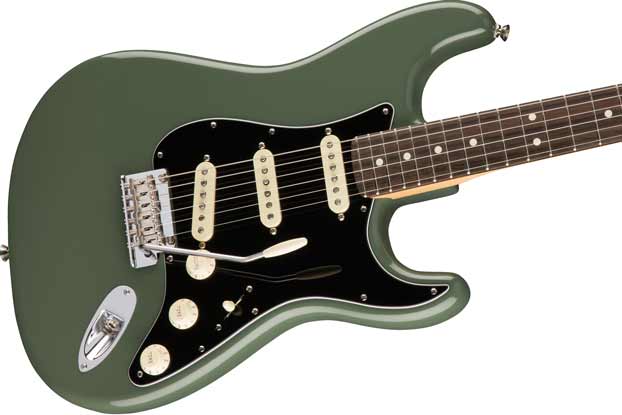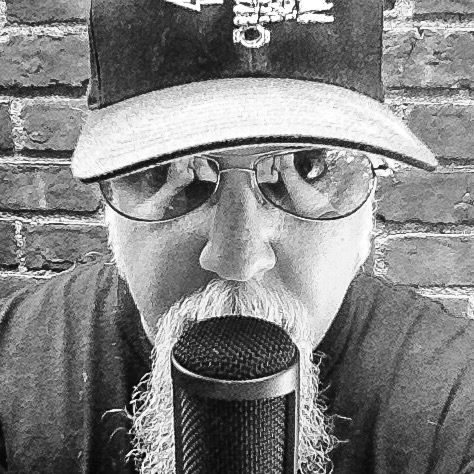Review: Fender American Professional Stratocaster and Telecaster

PLATINUM AWARD
From the entry-level Squier series to the personalized creations of the Fender Custom Shop and from vintage reproductions to modern innovations that push the envelope, Fender truly offers something for everybody through several different series of instruments that the company produces.
The incredible variety offered by Fender ensures that players will likely find an instrument that perfectly satisfies their needs, but it also can make the selection process confusing when trying to determine where to start.
With the introduction of Fender’s new flagship American Professional series, the choice for working guitarists who want a gig- and studio-worthy instrument with just the right balance of classic tones, familiar feel and modern refinements is easier than ever.
The refinements developed for the American Professional series may seem subtle, but the features and improvements will certainly be noticed by players with a few years of gigs under their belts as well as anyone who appreciates attention to all details from playability to sound. Many players have spent years making tweaks to their personal instruments that the American Professional series guitars deliver right out of the box.
The American Professional series consists of several Stratocasters (with standard triple single-coil, single/single/humbucker or dual-humbucker pickup configurations), a traditional Telecaster (two single-coils) and Telecaster Deluxe (dual-humbucker), a Jaguar, a Jazzmaster and various Precision and Jazz Basses and left-handed models. We took a look at an American Professional Stratocaster with maple fretboard and an American Professional Telecaster with rosewood fretboard.
FEATURES
At first glance, the American Professional Stratocaster and Telecaster seem like the classic versions of iconic electric solidbody guitar models that most guitarists know and love. However, subtle differences are immediately apparent the moment one picks up an American Professional guitar and plugs it in. The narrow-tall frets and distinctively comfortable feel of the modern “Deep C” neck profile, which falls perfectly in between the flat, slim feel of a modern C profile and chunkier feel of a vintage U profile, deliver effortless playability.
The pickups for both models are V-Mod single-coils that are individually designed and wound for each specific model and specific mounting position and provide the familiar beloved Strat and Tele tones players love. Both models also feature master volume controls with a treble-bleed circuit that preserves high-frequencies when turning down the volume.
All the latest guitar news, interviews, lessons, reviews, deals and more, direct to your inbox!
The Tele’s three-saddle bridge design looks familiar, but it has compensated brass barrel saddles for accurate intonation and a flat plate with no raised edges above the saddles, while the Strat has a pop-in tremolo arm with a stable feel.
Most of the other features are time-tested and true, including the alder bodies, maple necks with satin urethane finish on back, 25.5-inch scale length, 9.5-inch radius, 22 frets and traditional control configurations: five-way pickup selector, master volume, neck tone and middle/bridge tone for the Strat and three-way pickup selector, master volume and master tone for the Tele.
PERFORMANCE
I’ve already mentioned how great both the American Professional Strat and Tele play, but what instantly knocked me out is how both models delivered what I would consider the ultimate classic versions of Strat and Tele tones, respectively. The Strat’s V-Mod pickups have the most appealing character I’ve heard from a Strat since Fender’s first John Mayer model, and the Tele’s V-Mod pickups are beefy and ballsy with twang that packs a solid punch.
These are the tones that vintage connoisseurs spend years searching for (namely because once someone finds it they ain’t selling it) while pros go on endless quests for the ideal replacement pickups, yet here they are in a pair of affordable off-the-shelf brand new instruments. Both models have rock-solid construction and are shipped with perfect setups so you can take one to a gig the day you bring it home. They even come with Elite molded cases that are comfortably light yet durable enough to protect the guitars from the usual rough and tumble abuse. Perhaps the coolest feature is that both models come in a wide variety of traditional and unconventional finish colors and styles.
I particularly dug the Antique Olive finish on the Strat and the naked Natural finish on the Tele that Fender sent us, which reminded me of the customized instruments I lusted after when I started playing in the Seventies.
LIST PRICES: $1,399; American Professional Telecaster with Natural finish is $1,499
MANUFACTURER: Fender, fender.com
• The V-Mod single-coil pickups deliver bold, dynamic tones with the classic character and personality of the finest Strats and Teles.
• The “Deep C” neck profile is comfortably rounded and provides a “just right” feel that falls in between slim modern and chunky vintage profiles.
• The narrow-tall frets are not as wide or flat as medium-jumbo frets to provide fretting accuracy and more solid fingering feedback to the player.
• The master volume control features a treble-bleed circuit that preserves high frequencies when the volume level is decreased.
THE BOTTOM LINE
The American Professional series is the perfect new addition to Fender’s ever expanding lineup as it provides serious players with the classic sounds and modern playability they need right out of the box.
Chris is the co-author of Eruption - Conversations with Eddie Van Halen. He is a 40-year music industry veteran who started at Boardwalk Entertainment (Joan Jett, Night Ranger) and Roland US before becoming a guitar journalist in 1991. He has interviewed more than 600 artists, written more than 1,400 product reviews and contributed to Jeff Beck’s Beck 01: Hot Rods and Rock & Roll and Eric Clapton’s Six String Stories.

